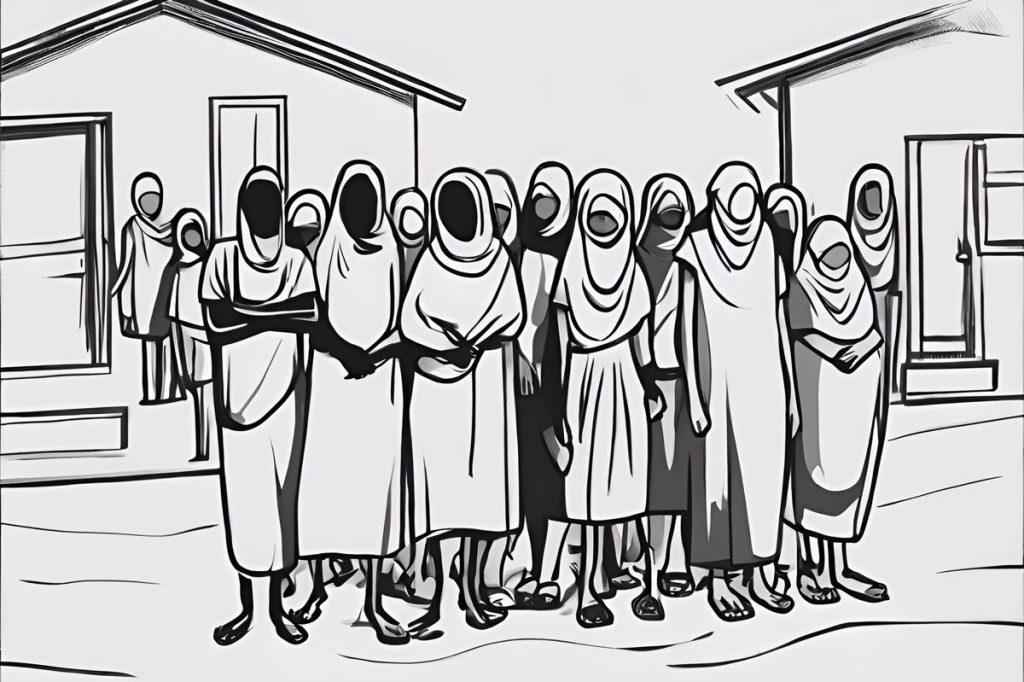The urgent need for reform in refugee housing assistance protocols is highlighted by a significant 25% rejection rate of applications, prompting calls for a comprehensive review and overhaul of existing criteria and regulations. Committee members, such as Disy deputy Marios Mavrides, stress the importance of addressing bureaucratic delays, outdated income criteria, and the need for a more inclusive and adaptive approach to ensure effective support for displaced persons and their families.
What reforms are proposed for refugee housing assistance protocols?
The proposal for reforming refugee housing assistance includes:
- Conducting a comprehensive review of current welfare plans, regulations, and legislation.
- Overhauling outdated criteria that hinder access to assistance.
- Addressing the bureaucratic delays in urban planning and building permits.
- Adopting a more inclusive and adaptive approach with increased income criteria.
- Reevaluating the relevancy of income criteria for housing aid.
- Engaging the interior minister for transformative processes and systemic change.
Urgent Reform Required for Housing Aid Protocols
The Displaced Persons Care and Rehabilitation Service faces critical scrutiny as a considerable 25% of applications for housing assistance are dismissed. The House refugee committee has recognized that the current criteria are antiquated and demand prompt attention. The proposal, spearheaded by Disy deputy Marios Mavrides, aims to ignite a comprehensive review and subsequent overhaul of the welfare plans, regulations, and legislation that underpin the support system for refugees.
Committee chair Nikos Kettiros highlighted the gravity of the situation in a recent press briefing. He noted the public’s frustration with the convoluted processes that hinder access to assistance. The committee’s findings underscore the challenges applicants face, which are further compounded by a rigid “traffic light system” that results in the rejection of nearly all hierarchical appeals.
The Dilemma of Permits and Planning Delays
The bureaucratic labyrinth extends into the realms of urban planning and building permits. With a requirement to file applications within a 12-month window, many find themselves at a standstill due to the state’s protracted issuance of necessary permits. Such delays contradict the efficient and supportive state mechanism that should enable, rather than obstruct, those in need.
Rita Superman, Disy deputy, stood in solidarity with those affected, advocating for a reevaluation of the current criteria. She stressed the importance of aligning the assistance framework with the realities of newer generations and the unique challenges they face in securing housing. The focus, she argued, should shift to a model that recognizes the nuances of each case, particularly when small financial discrepancies lead to application rejections.
Innovative Solutions for Refugee Welfare
The committee’s consensus indicates a shift toward a more inclusive and adaptive approach. The push for increased income criteria and a review of sponsorship terms signifies a move towards more compassionate and practical assistance. Furthermore, Dipa deputy Michalis Yiakoumis questioned the relevance of the income criterion altogether, labeling it as an outdated remnant of a bygone era.
Yiakoumis passionately conveyed the need for the state to reexamine its stance on housing assistance, emphasizing that it is not merely a social provision but a fundamental right for displaced individuals and their descendants. In an era where a young person’s salary is often insufficient, the current system appears to act as a barrier rather than a gateway to assistance.
Calls for Action and Change
As the discourse around refugee housing assistance continues, there is a palpable sense of urgency for action. The committee’s intent to engage the interior minister in discussions signals the beginning of what many hope will be a transformative process. By confronting these systemic issues, there is an opportunity to craft a framework that not only respects the rights of refugee children and their families but also fosters a more supportive and equitable society.
What reforms are proposed for refugee housing assistance protocols?
The proposed reforms for refugee housing assistance protocols include conducting a comprehensive review of current welfare plans, regulations, and legislation, overhauling outdated criteria that hinder access to assistance, addressing bureaucratic delays in urban planning and building permits, adopting a more inclusive and adaptive approach with increased income criteria, reevaluating the relevancy of income criteria for housing aid, and engaging the interior minister for transformative processes and systemic change.
Why is there a critical scrutiny of the Displaced Persons Care and Rehabilitation Service?
The Displaced Persons Care and Rehabilitation Service is under critical scrutiny due to a significant 25% rejection rate of applications for housing assistance. This rejection rate highlights the need for urgent reform and a comprehensive review of the existing criteria and regulations that govern refugee housing assistance.
How do bureaucratic delays in permits and planning impact refugee housing assistance?
Bureaucratic delays in urban planning and building permits create hurdles for refugees seeking housing assistance. The requirement to file applications within a limited timeframe, coupled with delays in permit issuance, hinders access to necessary support for displaced persons and their families. This bureaucratic labyrinth contradicts the efficient and supportive state mechanism needed to assist those in need.
What innovative solutions are being considered for refugee welfare?
Innovative solutions being considered for refugee welfare include a shift toward a more inclusive and adaptive approach, with increased income criteria and a review of sponsorship terms. There are calls to reexamine the relevance of income criteria altogether, recognizing that the current system may act as a barrier rather than a gateway to housing assistance. These solutions aim to provide more compassionate and practical support for displaced individuals and their families.

